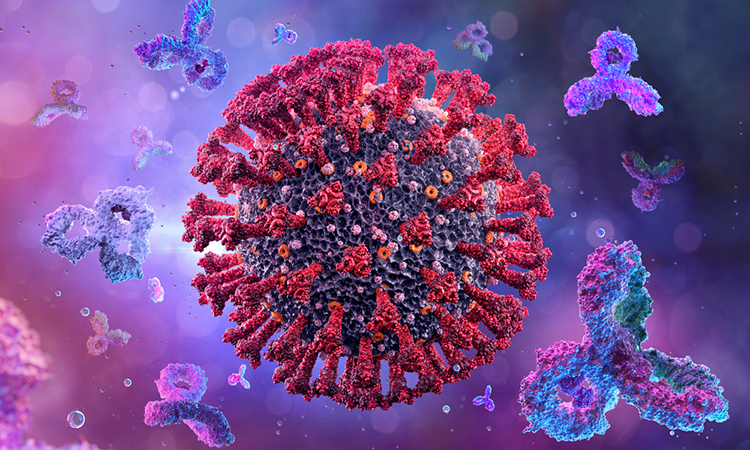FDA revokes bamlanivimab Emergency Use Authorization
Posted: 19 April 2021 | Hannah Balfour (European Pharmaceutical Review) | No comments yet
The Emergency Use Authorization (EUA) was revoked after data suggested that, in the US, the prevalence of variants likely to be resistant to the monoclonal antibody bamlanivimab alone is increasing.


The US Food and Drug Administration (FDA) has revoked the Emargency Use Authorization (EUA) that allowed the investigational monoclonal antibody therapy bamlanivimab to be used on its own as a treatment of mild-to-moderate COVID-19 in adults and certain paediatric patients.
The EUA was revoked because emerging scientific data suggests there is a sustained increase of SARS-CoV-2 viral variants that are resistant to bamlanivimab alone and, therefore, an increased risk for treatment failure. As of mid-March 2021, approximately 20 percent of viruses sequenced in the US were reported as variants expected to be resistant to bamlanivimab alone, increasing from approximately five percent in January 2021. As such, the FDA determined that the known and potential benefits of bamlanivimab, when administered alone, no longer outweigh the known and potential risks for its authorised use, as such the criteria for issuance of an authorisation are no longer met and the EUA was revoked.
Additionally, the FDA stated that, since there are no testing technologies available that enable health care providers to test individual patients for SARS-CoV-2 viral variants prior to start of treatment, they should use monoclonal antibody therapies that are expected to work broadly against all variants to reduce the likelihood of treatment failure.
The EUA was granted in November 2020, based on the totality of scientific evidence available at the time. It allowed the emergency use of bamlanivimab alone for the treatment of mild to moderate COVID-19 in adults and paediatric patients (aged 12 years of age and older weighing at least 40kg) with positive results of direct SARS-CoV-2 viral testing and who are at high risk for progressing to severe COVID-19 and/or requiring hospitalisation.
It is important to note that alternative monoclonal antibody therapies remain authorised under EUAs, including REGEN-COV (casirivimab and imdevimab, administered together) and bamlanivimab and etesevimab, administered together, for the same indication as bamlanivimab alone. The FDA believes that, based on the available evidence at this time, these alternative monoclonal antibody therapies remain appropriate to treat patients with COVID-19 when used in accordance with the authorised labelling.
“While the risk-benefit assessment for using bamlanivimab alone is no longer favourable due to the increased frequency of resistant variants, other monoclonal antibody therapies authorised for emergency use remain appropriate treatment choices when used in accordance with the authorised labelling and can help keep high risk patients with COVID-19 out of the hospital,” said Dr Patrizia Cavazzoni, director of the FDA’s Center for Drug Evaluation and Research. “We urge the American public to seek out these therapies when needed while we continue to use the best data available to provide patients with safe and effective treatments during this pandemic.”
The FDA stated that it will continue working closely with other federal governmental agencies, including the US Centers for Disease Control and Prevention (CDC) and the National Institutes of Health, on the surveillance of variants that may impact the monoclonal antibody therapies authorised for emergency use. The agency added that it remains committed to providing timely and transparent communication as additional information becomes available.
Related topics
Antibodies, Biologics, Regulation & Legislation, Therapeutics, Viruses
Related organisations
US Centers for Disease Control and Prevention (CDC), US Food and Drug Administration (FDA), US National Institutes of Health (NIH)









